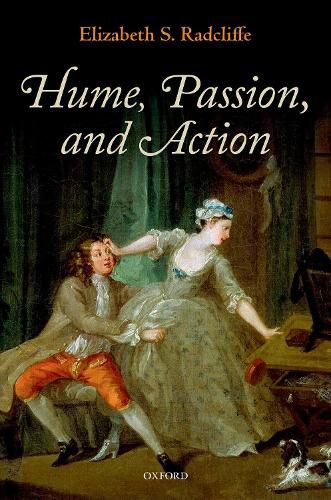Readings Newsletter
Become a Readings Member to make your shopping experience even easier.
Sign in or sign up for free!
You’re not far away from qualifying for FREE standard shipping within Australia
You’ve qualified for FREE standard shipping within Australia
The cart is loading…






Many modern and contemporary philosophers have thought that reason and passion oppose one another for control of our actions. They propose that our lives go better when reason governs. David Hume argues that this picture is mistaken because reason cannot move us to action on its own and so cannot be opposed to passion in this way. Elizabeth S. Radcliffe presents an original interpretation of the meaning of Hume’s unorthodox claims about motivation. She critiques several recent commentators’ views on Hume, all of whom allege that Hume allows that beliefs, without passions, can move us to action; she argues, instead, that passion is essential. She then applies these findings on motivation to interpret Hume’s theory of morality. Finally, she investigates little-explored details of Hume’s description of the interactions between the passions in order to uncover the degree to which the passions can exercise governance of themselves.
$9.00 standard shipping within Australia
FREE standard shipping within Australia for orders over $100.00
Express & International shipping calculated at checkout
Many modern and contemporary philosophers have thought that reason and passion oppose one another for control of our actions. They propose that our lives go better when reason governs. David Hume argues that this picture is mistaken because reason cannot move us to action on its own and so cannot be opposed to passion in this way. Elizabeth S. Radcliffe presents an original interpretation of the meaning of Hume’s unorthodox claims about motivation. She critiques several recent commentators’ views on Hume, all of whom allege that Hume allows that beliefs, without passions, can move us to action; she argues, instead, that passion is essential. She then applies these findings on motivation to interpret Hume’s theory of morality. Finally, she investigates little-explored details of Hume’s description of the interactions between the passions in order to uncover the degree to which the passions can exercise governance of themselves.